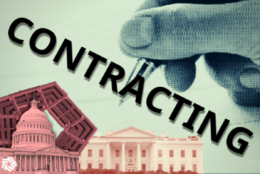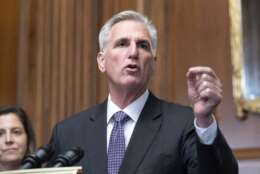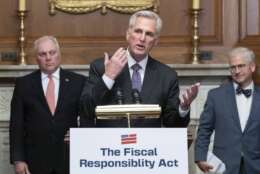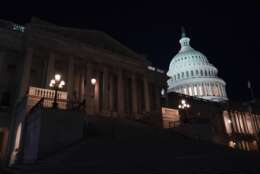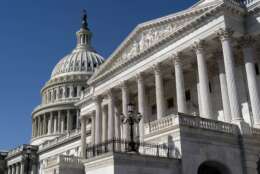Budget
-
Former Hill and federal executives recommend agency leaders to keep a close eye on the appropriations and be more proactive to protect against potential deep cuts.
July 10, 2023 -
Time-wise, there's not much left of the federal fiscal year. Less then three months now. Money-wise it's a different story. Agencies will spend around $217 billion between now and September 30, more than half by the Defense Department.
July 05, 2023 -
On today's Federal Newscast: A union for feds sounds the alarm about telework, budgets and DEI issues. What does it mean that agencies improperly paid out more than $247 billion? And IRS looks to beta-test a free, online tax-filing platform.
July 05, 2023 -
When the nearly endless debates over the debt ceiling were raging on, the United States didn't look very businesslike to the rest of the world. Internally, though, you never stop hearing that federal agencies should operate more like a business. This is both true and not true, according to my next guest.
June 30, 2023 -
The budget guidance hews closely to the National Cyber Strategy, directing agencies to continue to focus their resources on "zero trust" architectures, as well as requirements for critical infrastructure.
June 27, 2023 -
The "non-recurring expenses fund" doesn't have a flashy name, but it could become a "significant tool" for DHS to make both IT and facilities improvements.
June 23, 2023 -
In today's Federal Newscast: Senator Ron Wyden thinks spy agencies might be going too far to get data on Americans. The Treasury's IG says the IRS could improve on how it awards cash to whistleblowers. And Congress looks to eliminate the Pentagon’s office of Cost Assessment and Program Evaluation.
June 13, 2023 -
Debt ceiling, debt ceiling, debt ceiling. It's all you've heard from members of Congress and those who cover it. Now that all parties involved have come to an agreement to raise it, what does it mean for federal agency budgets?
June 05, 2023 -
Fending off a U.S. default, the Senate has given final approval to a debt ceiling and budget cuts package. It's now on its way to President Joe Biden’s desk to become law before a fast-approaching deadline.
June 02, 2023 -
The House has approved the debt ceiling and budget cuts package, sending it to the Senate. President Joe Biden negotiated the deal with Speaker Kevin McCarthy to avert a U.S. default crisis. They worked to assemble a coalition of centrist Democrats and Republicans to push it to approval over blowback from conservatives and some progressives. The U.S. was facing a potentially disastrous default in less than a week if Congress failed to act. Despite deep disappointment from hard-right Republicans that budget cuts don't go far enough, it was approved on a bipartisan House vote with Democrats. The Senate is expected to act quickly by the end of the week.
May 31, 2023 -
The IRS is facing substantial cuts to funds meant to rebuild its workforce and modernize its legacy IT systems over the next decade, as part of a deal to raise the debt ceiling and avoid a first-ever government default.
May 29, 2023 -
The debt ceiling deal has come with just days to spare before a potential first-ever government default. On Sunday, President Joe Biden and House Speaker Kevin McCarthy reached a final agreement and they are urging Congress to quickly pass it. Biden pronounced the development “good news” in remarks at the White House announcing the agreement. This followed a tentative compromise announced late Saturday. The deal risks angering some Democratic and Republican lawmakers as they begin to unpack the concessions, which include spending cuts. McCarthy and Biden spoke Sunday evening as negotiators drafted legislative text. They face a June 5 deadline when Treasury says the U.S. would risk a debt default.
May 28, 2023 -
A federal judge in Massachusetts will hear oral arguments next Wednesday in a lawsuit that argues both that federal employees must be paid even if Congress doesn’t increase the debt ceiling, and that the ceiling itself is unconstitutional.
May 26, 2023 -
In today's Federal Newscast: Investors worry about TSP's future, if the government defaults on it debt obligations. Marines are spending more time in basic training. And the Thrift Savings Plan makes room for the new Office of Participant Experience.
May 24, 2023 -
That smooshy sound you hear is everyone squirming in their seats as the national-debt default looms closer. The weird thing is, the government is fully appropriated for the rest of fiscal 2023, with four months of high spending yet to go.
May 23, 2023


